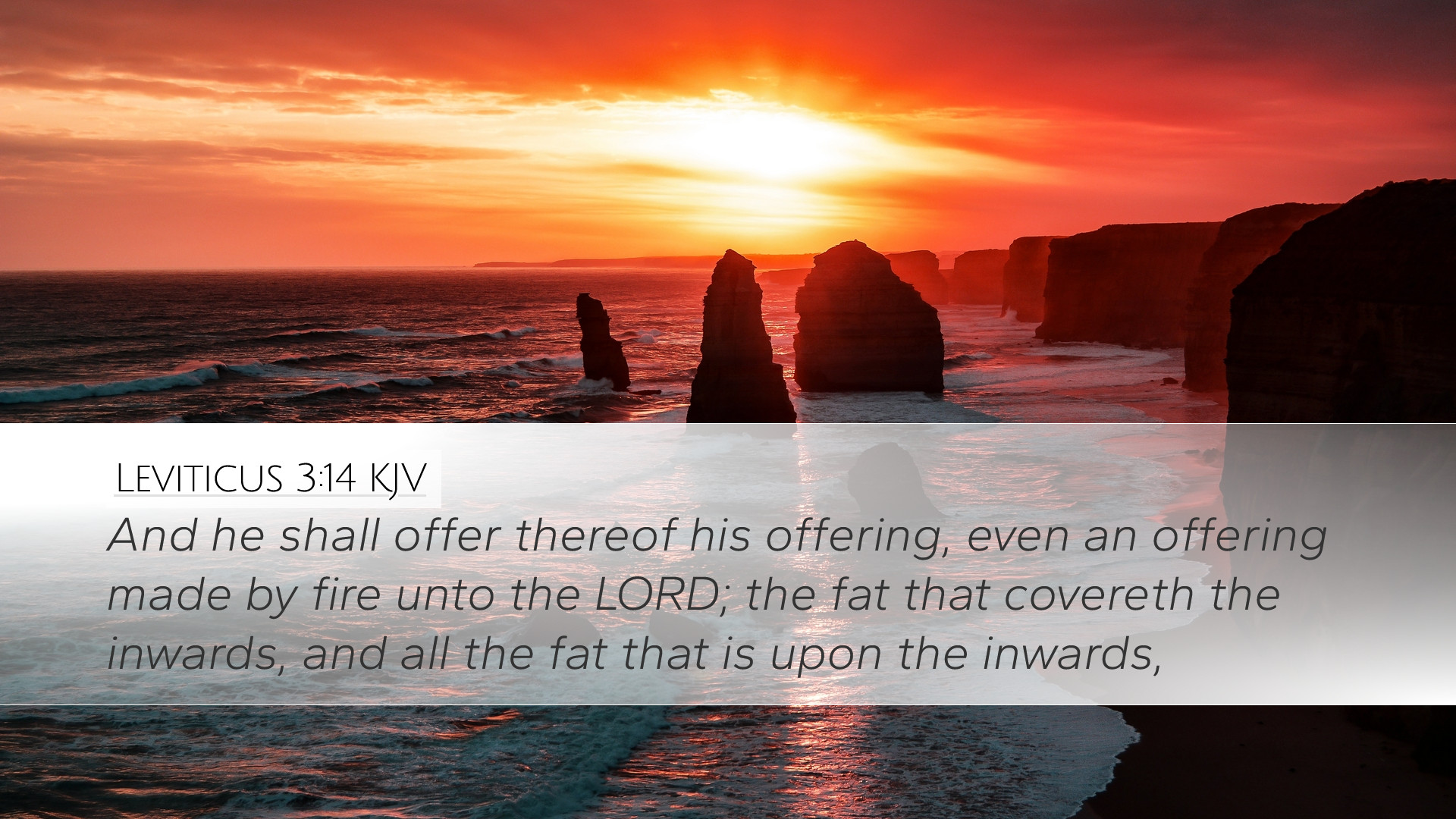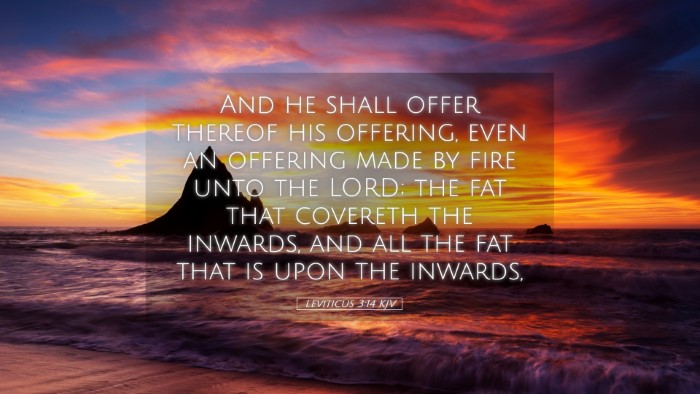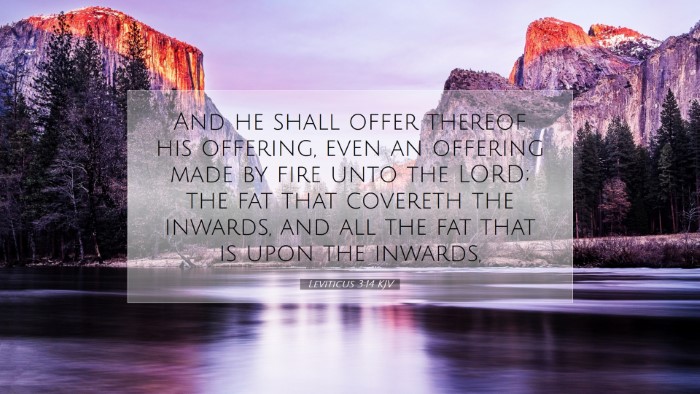Bible Commentary on Leviticus 3:14
Verse: "And he shall offer of the sacrifice of peace offerings an offering made by fire unto the LORD; the fat that covereth the inwards, and all the fat that is upon the inwards," (Leviticus 3:14, KJV)
Introduction
The book of Leviticus is primarily concerned with the laws governing the sacrificial system of ancient Israel. Chapter 3 specifically introduces the peace offering, known as the shelem, signifying peace, fellowship, and thankfulness between God and His people.
Understanding the Peace Offering
According to Matthew Henry, the peace offering represents the worshipper's desire for communion with God, whereby they express gratitude and joy for God's blessings. The offering serves not merely as a formality but as a profound acknowledgment that God's presence and favor elicit response from His people.
Albert Barnes adds that the fat of the animal was considered the best part, reserved for the Lord, symbolizing the necessity of offering our best to God. The physical act of burning the fat signified a pleasing aroma to God, representing the worshipper's aspirations and intentions.
Significance of the Fat Offering
In the context of Leviticus 3:14, the phrase "the fat that covereth the inwards" introduces a critical aspect of sacrificial offerings. Adam Clarke notes that fat is often associated with prosperity and abundance; thus, by offering the fat, the worshipper acknowledges that all blessings come from God.
The specific mention of "the inwards" indicates a deeper theological truth—the internal truths of one's heart and life should align with the external offerings made to God. As Henry suggests, this inward purity is essential for genuine worship and fellowship with God.
The act of sacrificing fat signifies laying aside one’s personal possessions for a higher divine purpose, reflecting the believer’s priorities in life. Barnes emphasizes that the preference for fat in offerings shows the worshipper's dedication and sincerity in their relationship with God.
Theological Implications
The peace offering underscored God's desire for a harmonious relationship with humanity. Matthew Henry highlights that this sacrificial act bolstered the covenant community’s identity, emphasizing that true worship involved acknowledging God’s sovereignty and provision.
Furthermore, the fat being consumed by fire has implications beyond mere ritual. It indicates the idea of total dedication to God, reminding believers today that worship is about surrendering our best and making every aspect of our lives a sacrificial offering to God.
Application for Worshipers
As modern believers interpret Leviticus 3:14, it becomes essential to consider what “offering our fat” means in contemporary life. Barnes interprets this through the lens of spiritual offerings, suggesting that we must commit our best efforts, time, and resources to God’s work.
Worshippers are encouraged to reflect on their heart's condition and their willingness to surrender their 'fat'—the surplus, abundance, or best qualities of themselves to God. Clarke proposes holistic worship where intentions and actions align, promoting integrity in the believer’s life.
Conclusion
In summary, Leviticus 3:14 not only highlights the importance of the peace offering but also serves as a reminder of the profound relationship between God and His people. Emphasizing gratitude, dedication, and the inward alignment of our lives, this verse encapsulates the essence of worship—dedicating our best and seeking genuine communion with God.
As we delve deeper into Scripture, may we continually seek to offer our 'fat'—not only as a means of ritualistic sacrifice but as a reflection of a heart fully surrendered to Christ.


